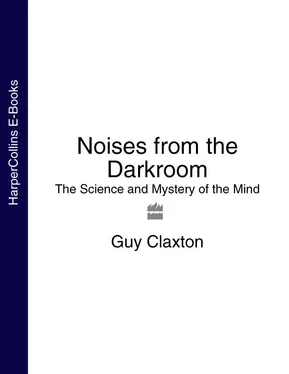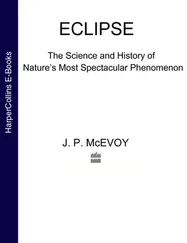On a more personal note, I am most grateful to Jenny Edwards and Liz Puttick, my editor, both of whom read drafts of the book and made suggestions for improvement, the wisdom of which I could not deny. Thanks to Stephen Batchelor for sharing on many occasions his profound understanding of Buddhism. Though Buddhism as such hardly appears in this book, its insights permeate Parts II, III and IV.
Finally, a note on style. Because the web of ideas in this book is spun within a context of practical concern, I have endeavoured to write in an evocative, sometimes even jaunty, manner that will, I hope, engage both the general reader and the experts in the various fields on which I touch. Where this has meant throwing my more natural scholarly caution to the winds, I have done so. One of my draft-readers wrote to me: ‘I can’t remember ever having read another science book that made me laugh aloud!’ I admit that comment pleased me almost as much as any learned approbation. In keeping with this attempt to treat weighty matters with a light touch, the referencing is minimal and illustrative rather than comprehensive – though if you wrote to me I could give you chapter and verse and in the interests of good story-telling I have written as if I were propounding the absolute truth, rather than constructing a flexible, equivocal span of ideas.
Guy Claxton
Dartington, October 1993
1 Evolution of the Mind
The mind is far too narrow to contain itself. But where can that part of it be which it does not contain? Is it outside and not in itself? How can it be, then, that the mind cannot grasp itself? A great marvel rises in me; astonishment seizes me. Men go forth to marvel at the height of mountains and the huge waves of the sea, the broad flow of the rivers, the vastness of the ocean, the orbit of the stars, and yet they neglect to marvel at themselves.
St Augustine
Mind, n. A mysterious form of matter secreted by the brain. Its chief activity consists in the endeavour to ascertain its own nature, the futility of the attempt being due to the fact that it has nothing but itself to know itself with.
Ambrose Bierce
Pooh got up and began to look for himself.
A.A. Milne
The Overestimation of Consciousness
When people talk about something being ‘second nature’, they are referring to what seems natural, obvious, or habitual – common sense. It is the business of both scientific and religious enquiry (in their very different ways) to keep showing us how far this second nature misrepresents and oversimplifies ‘ first nature’: the reality of Nature and – more importantly in this book – Human Nature. We take our view of ourselves for granted. Yet what is second nature to us about ourselves is at least as suspect as our flawed intuitions about the natural world outside.
The two most vital ingredients of human nature, to which our ‘second nature’ does not do justice, are its mystery and its history. Instead of a core apprehension of the mystery we truly are, we have unwittingly constructed a bogus sense of self, full of hubris, that is closely identified with consciousness: so closely that we are no longer sensitive to the underlying, inaccessible layers and motions of mind, brain and body that form the moment-to-moment swell from which the breakers of consciousness emerge. It is as if we imagined that the drama of our lives were being played out on a brightly lit stage, oblivious to the wings, the dressing-rooms, the technicians, and all the invisible paraphernalia without which there could be no play.
We do not need to go back-stage, to know every detail of what goes on behind the scenes, in order to enjoy the production. But if we do not know, at some level, that there is a ‘behind-the-scenes’, then we confuse playing and reality. We become busy and anxious, forced to duck down in our seat when the villain pulls a gun, and to clamber on to the stage to rescue the heroine. When the mystery of the mind is unappreciated, people become compulsively drawn into the drama, as campaigners, insurers, money-makers and busybodies. When the dark surround is acknowledged, and the attempt to control everything is put in perspective, play is possible. God – or ‘enlightenment’, or the Tao – is essentially a sense of mystery; a mystery that is impenetrable, but entirely understandable. When Nietzsche wrote ‘God is dead’, he was declaring that humankind had lost its sense of mystery.
By identifying ourselves with a mobile pinprick of self-awareness, we overestimate the importance and the trustworthiness of the conscious mind, and we become out of touch with the invisible layers of brain and body on which it rests. This is unfortunate because while the modern conscious self is solitary, a candle in the night, the earlier evolutionary strata that continue to comprise the bulk of our being are ecological, connected, ‘at home’. The surface of our skin and the end of our driveway are not the limits of our personal terrain; they form our connection, our joints, the points at which each ‘member’ of the human race is connected to the wider body of nature and society. If we do not ‘re-member’ ourselves, we must continually strive to forge links of love (or, in desperation, domination) that are caricatures of what, in the mystery, is already, still, in place.
In the last three centuries, we have completed a complicated process of evolution, each individual step of which has helped us to survive, but which eventually has led us to lose our understanding of mystery, and with it our sense of wholeness, belonging and reverence. Consciousness has become the adopted seat of our identity. People nowadays do not just think a lot; they think that who they are is someone who is doing a lot of thinking. Cogito, ergo sum. We think that, if we do not notice something, it has no effect on us. We think that our deepest interests are served by pursuing those things that we are aware of wanting. We think that, if only we could figure things out carefully enough, most of life’s difficulties could be smoothed out. We take our perceptions for granted, and think that what we think matters frightfully.
We have been taught by Descartes and his heirs to be ignorant of those aspects of human life that are not easily available to conscious inspection. We inhabit a world made up of consciousness, and what cannot enter into that world is None of My Business. How the blood gets round the body, by what alchemy a cauliflower is transmuted into human flesh and bone: these may be miracles – they can intrigue me, as a Black Hole or a Desert Orchid may intrigue me – but I feel a bystander, not a participant. I do not, except rarely (on occasions such as this), even become aware of not being aware of the millions of processes that sustain me and comprise me. We do not even bother to think of such things as unconscious.
And when we do think of ‘the unconscious’ we have been taught by Freud to associate it with the murky bits of the mind; those aspects of emotion and personality from which we shy away in fright or revulsion. The unconscious is ‘The Little Shop of Horrors’; it is ‘Where the Wild Things Are’. It is the cellar in which we put everything about ourselves that we have (or had) good reason to forget. It is selfish, infantile and embarrassing. It wants to shout ‘I’M BORED’, ‘LET’S FUCK’ or ‘DON’T HURT ME’. If ‘I’, the conscious censor, were to let it, it might even erupt with hate or lust or sheer energy that would make me, the conscious me, think I was mad.
Because we are creatures of belief, what we believe – without knowing that we believe it – about our minds determines the reality we inhabit. It determines what we allow ourselves to see. It determines the goals we must pursue. It determines the laws we pass and the motorways we build and the forests we fell and the restaurants we frequent. Even the countryside, throughout vast areas of the world, is a monument to mind: a representation not only of what generations have believed in and lived for, but of the view they have had of themselves – of their emotions, memories, thoughts and identities. Our ‘folk psychology’, woven out of landscape, language and a million subliminal events, forms the invisible filter through which we have to look as we look inward.
Читать дальше












